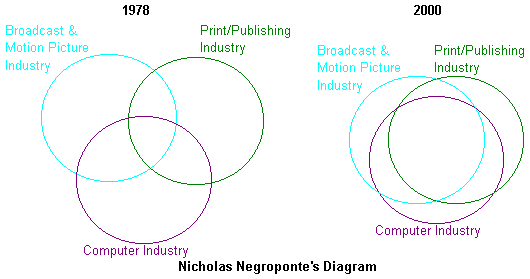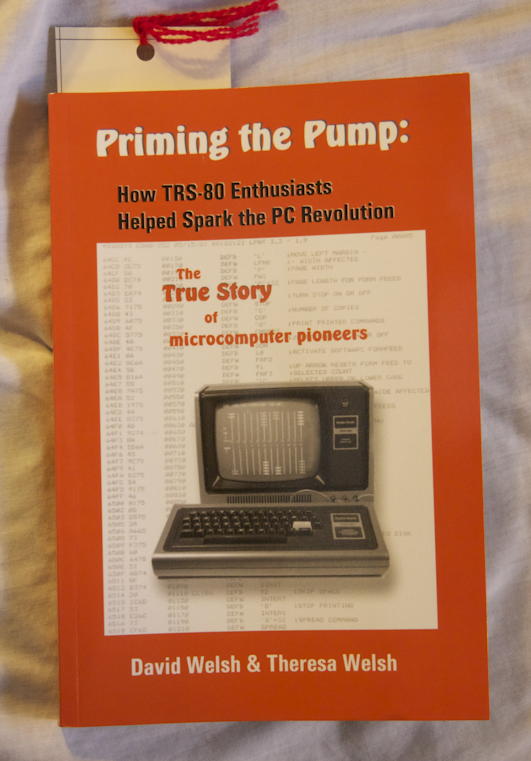Negative Space: computers
- Apple markets round wheel
- “Not enough corners,” say pundits.
- Belkin 6-plug, 2-port wall brick and USB charger
-
 I picked this up in Target in Round Rock for about $20 and it immediately became invaluable. It takes over a standard two-plug wall receptacle and turns it into six plugs and two USB ports.
I picked this up in Target in Round Rock for about $20 and it immediately became invaluable. It takes over a standard two-plug wall receptacle and turns it into six plugs and two USB ports.
- Cooperative Computing in the Nineties
- Opportunities for Academic Computing Services
- Hacks
- Articles about programming in Python, Perl, Swift, BASIC, and whatever else I happen to feel like hacking at.
- I. Long-term trends
-
 Colleges and universities today find themselves immersed in technology. Over the past decade, the demand for computing power for research and instruction has resulted in the creation of thousands of faculty research labs, special purpose discipline-centered computing labs, remediation facilities, and vast public access labs for word processing, document processing and other generic computing tasks.
Colleges and universities today find themselves immersed in technology. Over the past decade, the demand for computing power for research and instruction has resulted in the creation of thousands of faculty research labs, special purpose discipline-centered computing labs, remediation facilities, and vast public access labs for word processing, document processing and other generic computing tasks.
- II. Concrete Goals
- In the 1990s, educators will find themselves more and more in control of information tools that will enable them to teach and do research in their discipline in a variety of new ways. These long term trends present opportunities for both academic departments and university instructional computing services to effect wide ranging changes in how computing now fits in the university environment.
- III. Examples of Success
- It would be unfair to say that institutions of higher education have had no success in weaving computing into the instructional fabric of their institutions. All of us have met both success and failure to one degree or another. Many excellent examples have been documented in the literature. The authors would like to provide two such positive examples based on personal experience.
- Internet and Programming Tutorials
- Internet and Programming Tutorials ranging from HTML, Javascript, and AppleScript, to Evaluating Information on the Net and Writing Non-Gendered Instructions.
- IV. Challenge of the Computer Revolution
- The challenge, however, is to capitalize on these trends through cooperative computing efforts aimed at centering the use of computing tools in the disciplines themselves. Convenient departmental, preferably individual office access to campus library bibliographic resources as well as national data bases and data services is critical to scholarship and research.
- Mimsy Were the Borogoves
- The official blog of Jerry Stratton.
- Mimsy Were the Technocrats
- As long as we keep talking about it, it’s technology.
- Neon Alley
- The Internet in literature, signs and portents of the future, and tutorials for today.
- Priming the Pump: How TRS-80 Enthusiasts Helped Spark the PC Revolution
-
 David and Theresa Welsh wrote some of the first great software for the TRS-80, and knew a lot of the other people who were also writing great software. In Priming the Pump, they talk about the history of personal computers and the first non-kit mass-market personal computer, the TRS-80 Model I.
David and Theresa Welsh wrote some of the first great software for the TRS-80, and knew a lot of the other people who were also writing great software. In Priming the Pump, they talk about the history of personal computers and the first non-kit mass-market personal computer, the TRS-80 Model I.
- Save Me Time, Save Yourself Trouble: Buy Macintosh
- Why the Internet support specialist wants you to buy Macintosh. Hell hath no fury like a Windows user who discovers the Macintosh advantage.
- Usenet
- Usenet is the AM radio of the information highway. When people talk about the discussion groups on the net, they’re usually talking about Usenet.
- Webserving on Eight Megabytes a Day
- This article is a blast from the past. Yes, I used to run Negative Space on eight megabytes. Over a 14.4 modem. Uphill. Both ways. Presumably you could still do it, but it would have to be static files for the most part (and you might want to hook that Macintosh up to Ethernet).
- What You Want
- What are you going to want once you get to the infobahn?
- Who’s Afraid of the Big Bad Wolf?
- Cryptography is the assault weapon of the Internet.
More Information
- Priming the Pump: How TRS-80 Enthusiasts Helped Spark the PC Revolution• (paperback)
-
I’m only twenty-five pages into this book, and I’m already hooked. This is a great book about the early days of the microcomputer industry, the days when the TRS-80 was the only fully off-the-shelf non-kit computer, when Wayne Green was one of the biggest magazine publishers in the United States, and when having a computer meant having friends over to play around at programming. (David Welsh and Theresa Welsh)
 I picked this up in Target in Round Rock for about $20 and it immediately became invaluable. It takes over a standard two-plug wall receptacle and turns it into six plugs and two USB ports.
I picked this up in Target in Round Rock for about $20 and it immediately became invaluable. It takes over a standard two-plug wall receptacle and turns it into six plugs and two USB ports. Colleges and universities today find themselves immersed in technology. Over the past decade, the demand for computing power for research and instruction has resulted in the creation of thousands of faculty research labs, special purpose discipline-centered computing labs, remediation facilities, and vast public access labs for word processing, document processing and other generic computing tasks.
Colleges and universities today find themselves immersed in technology. Over the past decade, the demand for computing power for research and instruction has resulted in the creation of thousands of faculty research labs, special purpose discipline-centered computing labs, remediation facilities, and vast public access labs for word processing, document processing and other generic computing tasks. David and Theresa Welsh wrote some of the first great software for the TRS-80, and knew a lot of the other people who were also writing great software. In Priming the Pump, they talk about the history of personal computers and the first non-kit mass-market personal computer, the TRS-80 Model I.
David and Theresa Welsh wrote some of the first great software for the TRS-80, and knew a lot of the other people who were also writing great software. In Priming the Pump, they talk about the history of personal computers and the first non-kit mass-market personal computer, the TRS-80 Model I.